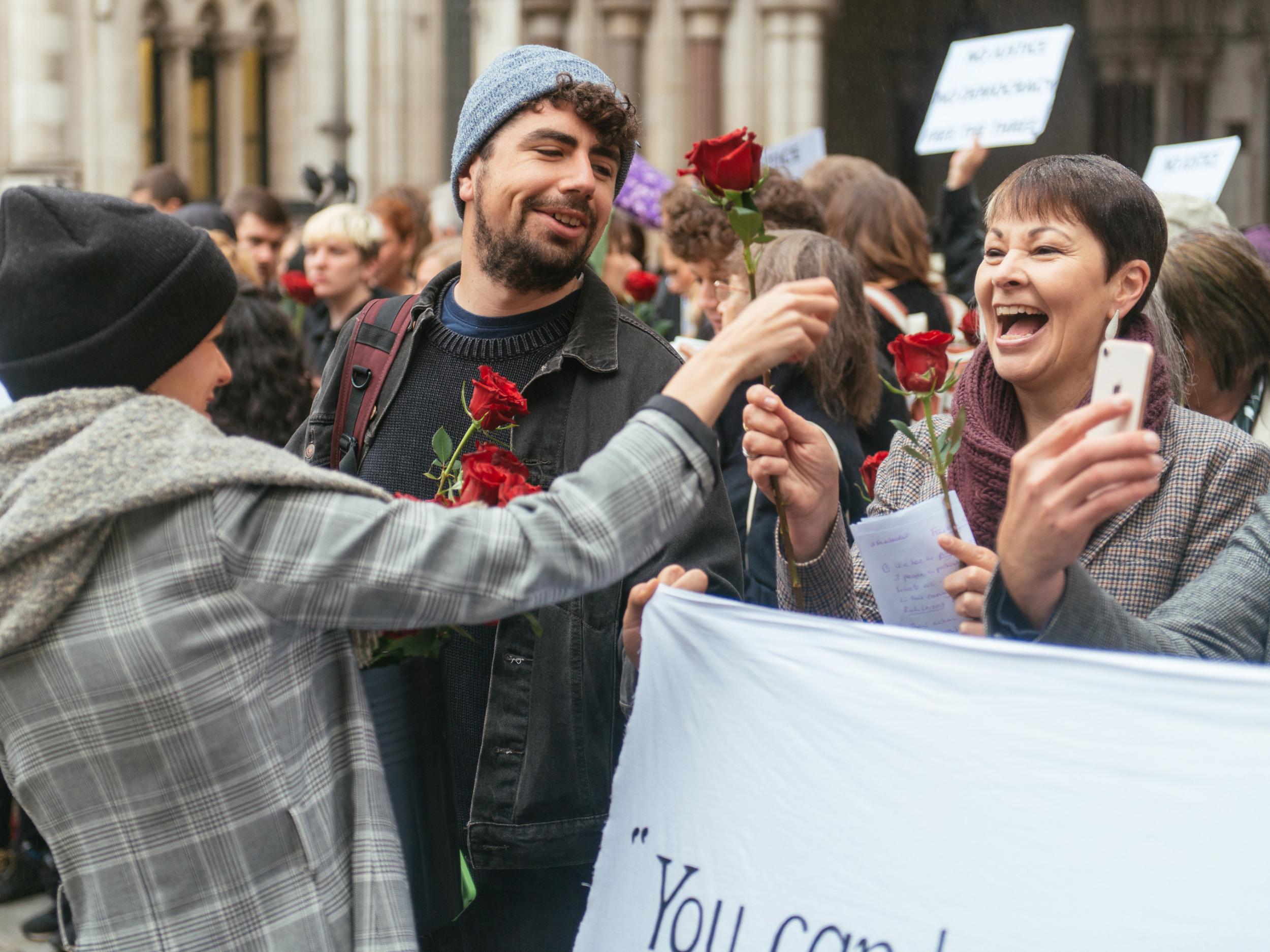Anti-fracking activists jailed for climbing onto Cuadrilla lorries at Lancashire drilling site freed on appeal
Judge rules sentences given to protesters were 'manifestly excessive'
Your support helps us to tell the story
From reproductive rights to climate change to Big Tech, The Independent is on the ground when the story is developing. Whether it's investigating the financials of Elon Musk's pro-Trump PAC or producing our latest documentary, 'The A Word', which shines a light on the American women fighting for reproductive rights, we know how important it is to parse out the facts from the messaging.
At such a critical moment in US history, we need reporters on the ground. Your donation allows us to keep sending journalists to speak to both sides of the story.
The Independent is trusted by Americans across the entire political spectrum. And unlike many other quality news outlets, we choose not to lock Americans out of our reporting and analysis with paywalls. We believe quality journalism should be available to everyone, paid for by those who can afford it.
Your support makes all the difference.Three activists jailed for a protest at a fracking site in Lancashire have been freed on appeal.
Simon Blevins, 26, Richard Roberts, 36, and Rich Loizou, 32, had their jail terms replaced with conditional discharges.
The three men were initially convicted of causing a public nuisance after they climbed onto lorries bringing drilling equipment to Cuadrilla’s Preston New Road site last July.
They were sentenced to up to 16 months in prison, while a fourth protester Julian Brock, 47, was given a 12-month prison term, suspended for 18 months. He did not challenge his sentence.
Following the decision, Lord Chief Justice Lord Burnett said: “We have concluded that an immediate custodial sentence in the case of these appellants was manifestly excessive.
“In our judgment the appropriate sentence which should have been imposed on 26 September was a community order with a significant requirement of unpaid work.
“But these appellants have been in prison for six weeks.

“As a result, and only for that reason, we have concluded that the appropriate sentence now is a conditional discharge for two years.”
The packed courtroom erupted with applause and singing after the decision was announced.
Hundreds of protesters had gathered outside the Royal Courts of Justice prior to the verdict, including family members of the three men, environmental campaigners and former Green Party leader Caroline Lucas.
After the ruling, Platon Loizou, father of Rich Loizou, said: “We are just delighted. Today justice has really been done.
“We should not be here in the first place, but what’s done is done. We have now got to concentrate our efforts on stopping fracking in this country.”
Rosalind Blevins, mother of Simon Blevins, thanked the thousands of people she said had shown support for their cause since the original ruling.
Hundreds of representatives from academia and trade unions have issued open letters in recent weeks, published in The Independent, slamming the “absurdly harsh” sentencing.
“We are very happy about the decision to overturn the excessive sentence ... We need more, not less, direct action to challenge the government’s support of the fracking industry,” said Andrea Brock of the University of Sussex, who issued one of those letters with Dr Amber Huff.
Friends of the Earth and human rights organisation Liberty made submissions to the Court of Appeal on the original sentences, raising concerns that the decision was a violations of people’s right to protest.
At the initial sentencing, Judge Robert Latham had said that he could not suspend the jail terms handed to the three protesters as there was too great a risk of them reoffending.
“Friends of the Earth intervened in this important case on the basis that these sentences were disproportionate,” said Katie de Kauwe, the environmental group's lawyer said.
“We are very pleased that the Court of Appeal has today found that the custodial sentences were manifestly excessive and quashed them. This is a great outcome.”
Responding to the news, John Sauven, executive director of Greenpeace, said: “Today’s verdict is a major cause for celebration not just for activists, but for everyone whose home, community and climate are threatened by reckless industrialisation”.
“This is still a country where dissent is tolerated and speech is free.”
Fossil fuel company Cuadrilla was given the go ahead to begin fracking last week after a failed High Court bid by campaigners attempting to block their efforts due to safety concerns.
Green groups have expressed concerns about the impact fracking will have on local environments, as well as the need to avoid further fossil fuel extraction.
However, the government has consistently supported the controversial practice and stated it could be a key part of the UK’s energy supply.
On Monday, operations began at the Preston New Road site amid more protests by anti-fracking groups. The drilling marked the first fracking to take place in the UK for seven years.
In a statement read out on behalf of the so-called “Frack Free Three” after the ruling, they invited others to join them on Saturday for a mass demonstration at the new site.
“Fracking is beginning right now, so there has never been a more crucial moment to take action. Your planet needs you,” they said.

Join our commenting forum
Join thought-provoking conversations, follow other Independent readers and see their replies
Comments